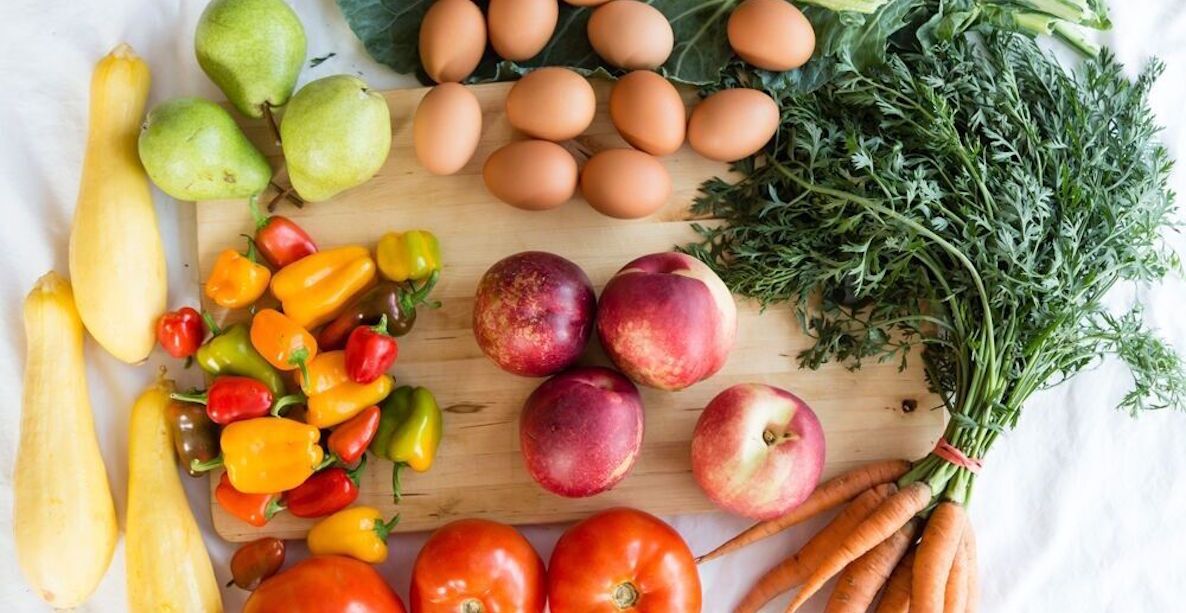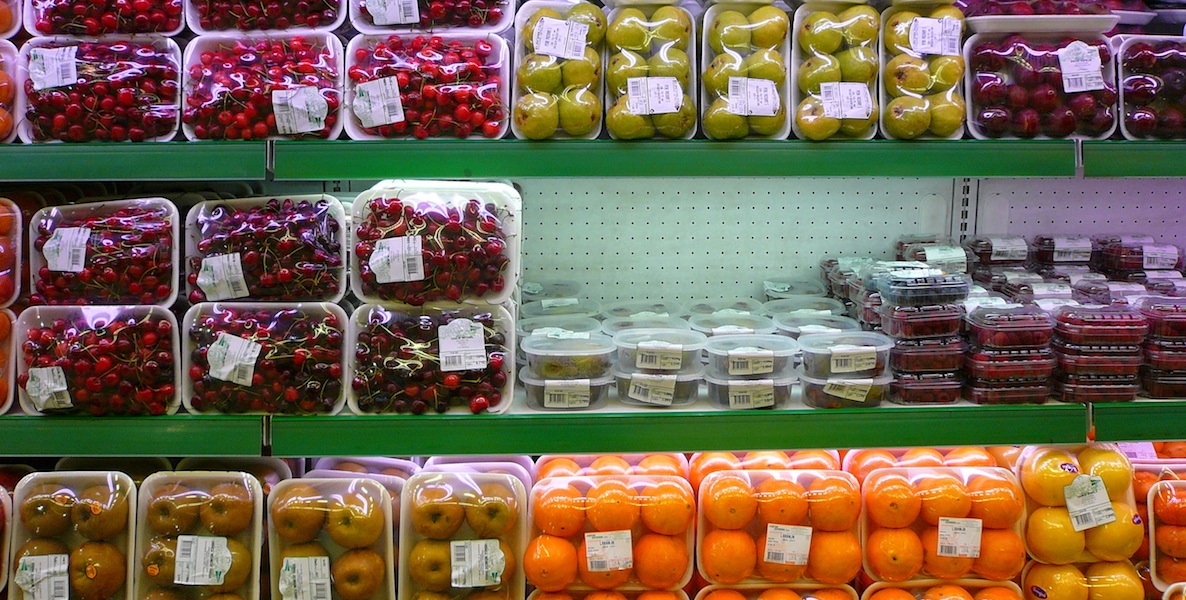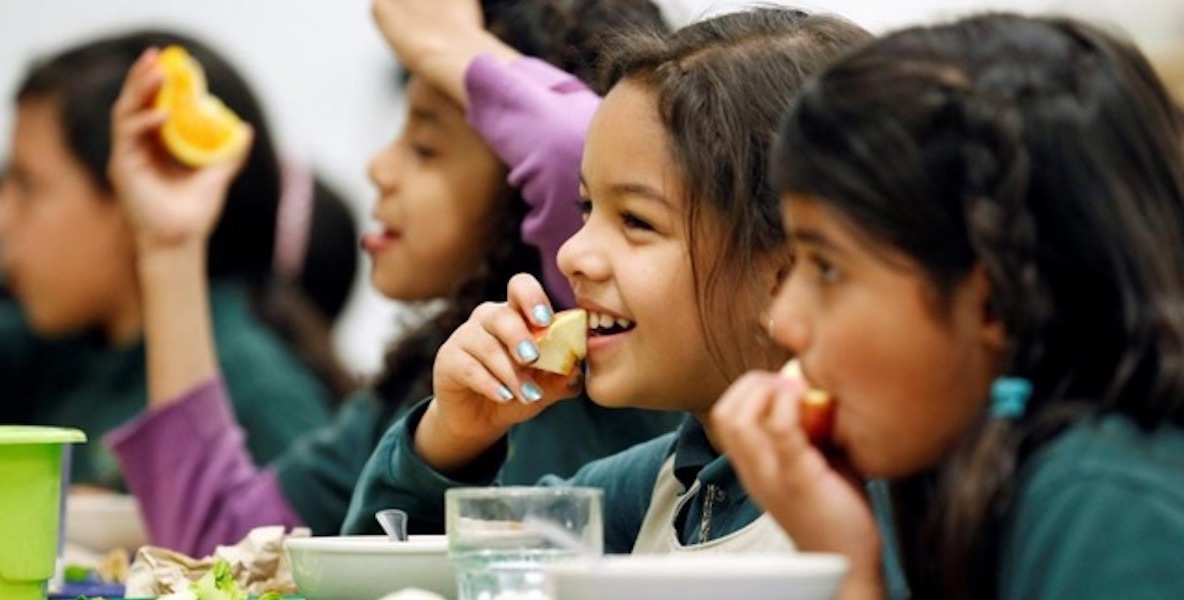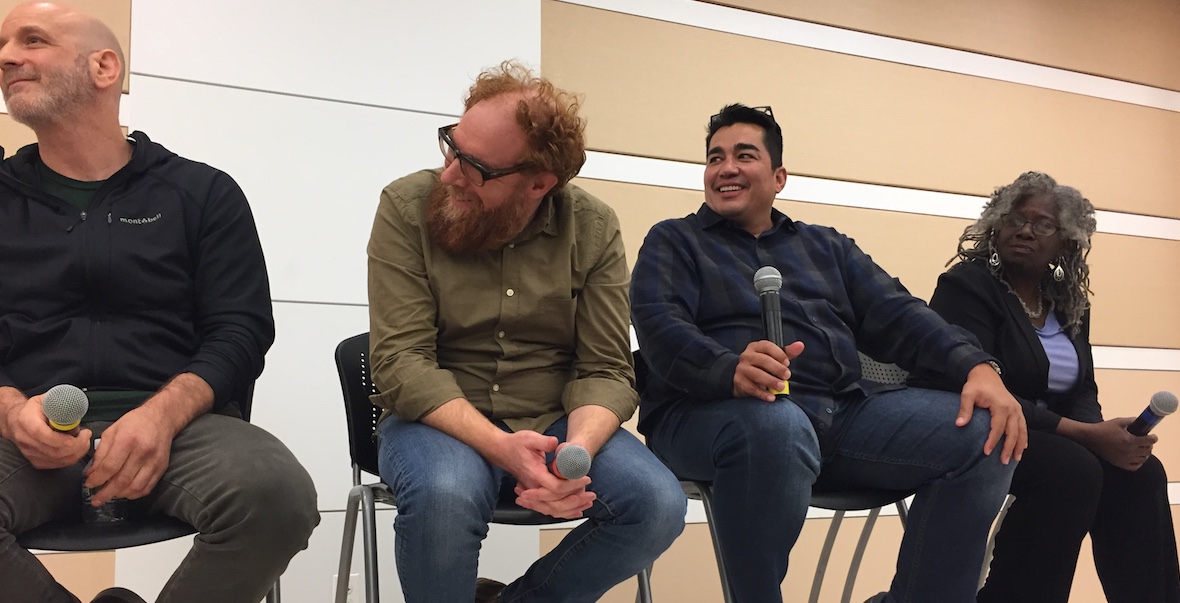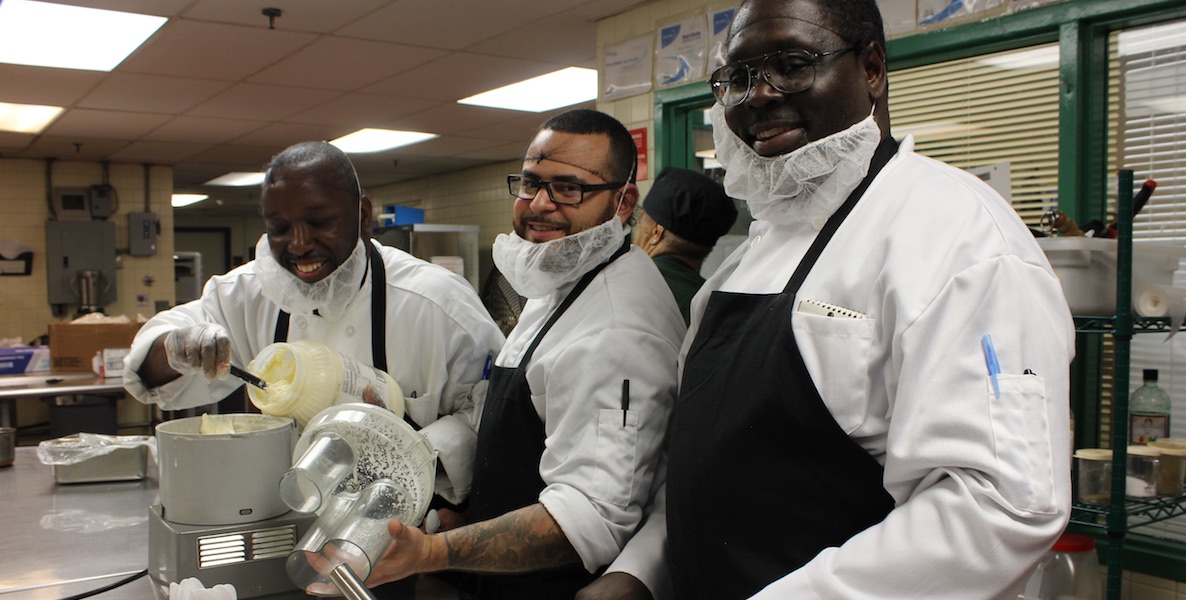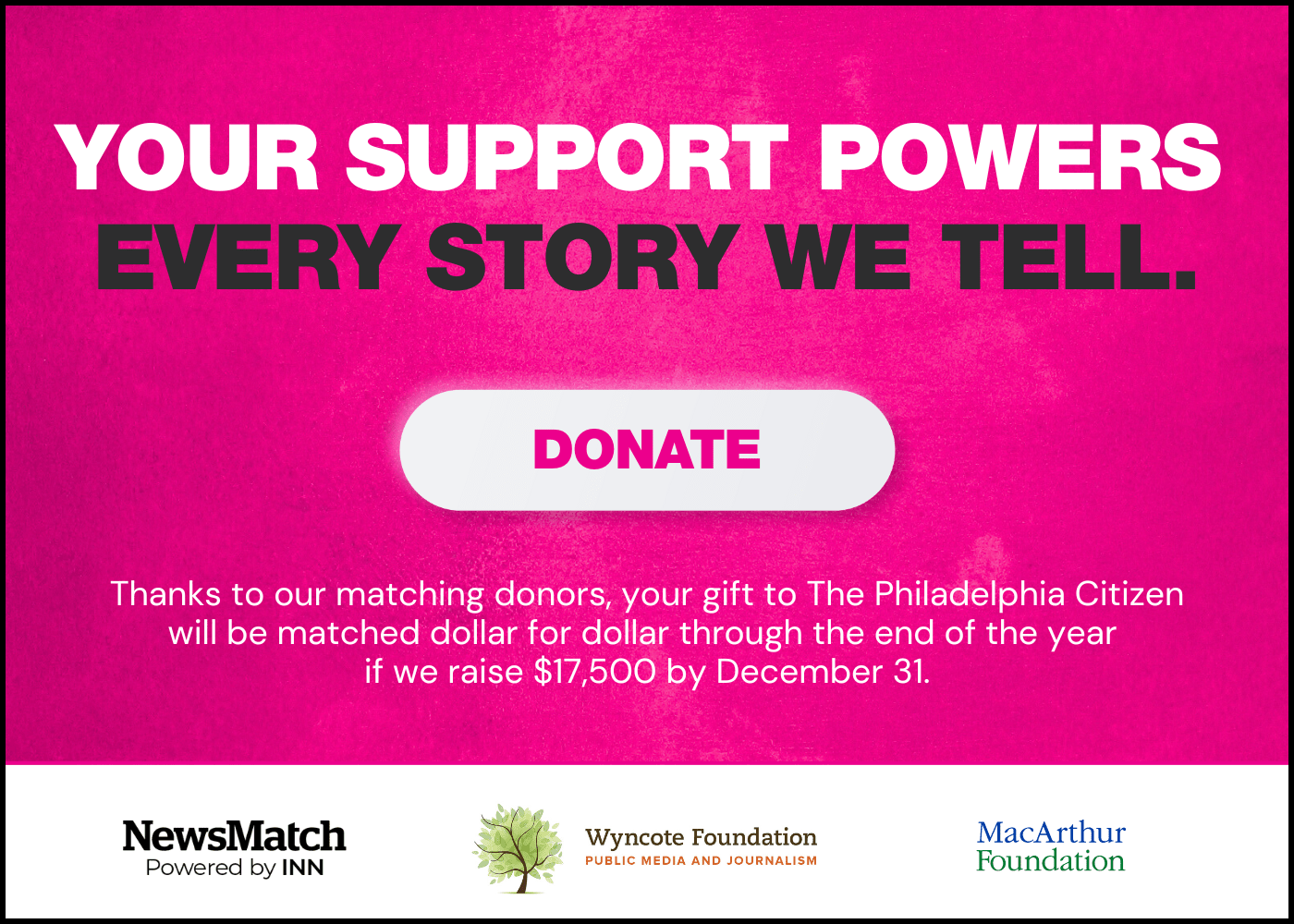
Prefer the audio version of this story? Listen to this article in CitizenCast below:

Last month, California-based Imperfect Produce became the third “ugly produce” subscription company to deliver to Philadelphians. Along with Hungry Harvest and Misfits Market, Imperfect packs up bargain boxes of produce that doesn’t measure up to strict aesthetic standards at mainstream grocery stores, or is surplus, and delivers them to your front door. By buying a box, you’re supposed to be supporting an innovative solution to food waste, making use of perfectly good produce that would have otherwise gone to a landfill, while also supporting farmers who lose money when food is tossed.
Ugly produce has been a pretty big hit in Philly so far. Abhi Ramesh, founder of Philly-based Misfits Market, says they deliver to about 2,500 customers in the greater Philadelphia area. When Imperfect Produce launched in the city last month, they received 980 orders in the first week. With the help of major investors, all three companies have expanded—and are continuing to expand—rapidly.
Yes, it’s cheaper. But as cheap as they claim? Not always.
After earning a $100,000 investment on Shark Tank in 2016, Baltimore-based Hungry Harvest expanded to Philly, South Jersey, and Delaware the same year. Imperfect Produce opened a new distribution hub along the East Coast and expanded their offerings beyond produce with a massive investment from NBA star Kevin Durant’s Thirty Five Ventures. Last week, Misfits Market announced their first round of venture capital funding—a $16.5 million investment that’s supporting their expand to eight new states on the east coast.
But these companies have also generated controversy, as happened last summer when Oakland-based food justice collective Phat Beets Produce accused the ugly produce movement of being a “market solution disguised as activism,” in an op-ed published by the New Food Economy. The organization had seen a drop in sign-ups for their CSA, which provides produce from local farmers of color to low income neighborhoods in the Oakland area, because of competition from Imperfect Produce. Phat Beets said the venture-capital-backed company supports global agribusinesses, undermines alternative food systems, and creates a market for food that would have otherwise been distributed for free through food banks.
Imperfect responded with a long post on their blog. “We are saving good produce from rotting on fields, paying hard working farmers a fair price for it, and helping middle and working class people save money on healthy produce,” CEO Ben Simon wrote.
Turns out, there’s truth to both points. Here, we lay out what to consider before signing up:
What’s in the box?
The subscription set-up is pretty similar for all three companies: you choose your size, whether you want organic produce, conventional or a mix, and then customize (optional, may change the price) based on the weekly availability list.
On their first week of delivery in Philadelphia, I received Imperfect’s medium organic box (their most popular option) and the first thing I noticed was that the fruits and vegetables weren’t very “ugly.” Besides exceptionally small lemons and a pear showing off serious glutes, everything looked just like the produce I would find at the grocery store. The same was true for the contents of Misfits Market and Hungry Harvest boxes I’ve seen.
That’s because often these companies aren’t just sourcing cosmetically imperfect produce, but also surplus, which happens when a farmer has a bumper crop, wholesalers receive excess supply from growers that they don’t have buyers for, or a slew of other reasons. In the industry, it’s referred to as “number two” or “grade B.”
“We don’t just want it to be fresh and delicious, we want it to be eco-friendly food that’s good: good for the planet, good for our bodies, and good for the hard-working folks involved in growing it,” Imperfect says on its website.
Ryeco LLC, a wholesaler and distributor based at the Philadelphia Wholesale Produce Market (PWPM) that sources from produce companies all over the world, works with Hungry Harvest. “A lot of times you’ll get surplus stuff, or things will be rejected for silly reasons, or because the truck wasn’t at temp,” buyer and salesman David Braine says. In some cases, if a truckload of produce is just a few degrees off the required temperature range, or it didn’t make it to the store within their specific receiving window, it’s standard protocol to send the entire shipment back. Other times, growers send more than the wholesalers can move.
![]()
“It’s on consignment that we handle this stuff,” Braine says. “If the market is flooded and nobody buys it, the farmer takes a hit.” (In this case, the farmer could refer to both the owner of a medium-sized farm in South Jersey or a mega industrial farm halfway around the world.)
If he can sell that produce to Hungry Harvest, Ryeco takes a cut (and avoids PWPM’s $85 per pallet disposal fee) and the grower gets paid.
How Sweet is the Deal?
For many customers, the draw is the discount; Misfits Market says their produce boxes are up to 50 percent cheaper than shopping at the grocery store. Their “Mischief” box (10 to 12 pounds) costs $23.75 and the “Madness” box (18 to 20 pounds) costs $42.50, before the $4.50 shipping fee.
Before the flat $4.99 shipping fee, Imperfect’s medium-sized (11 to 13 pounds) organic box costs $22 to $24. I shopped for all the produce in my Imperfect share on Shoprite’s website, to see how the price compared. The total came to about $27. The company claims to offer a box of produce “for about 30% less than grocery stores,” according to their website, which means my box should have cost closer to $18 before delivery.
“Imperfect Produce’s prices are listed as an estimated range, as all items are priced individually,” head of operations, Neil Neufeld wrote to me in an email when I asked about the discrepancy. “Customers can fully customize their box each week to ensure that they pay for what they want and will use.”
So yes, it’s cheaper. But as cheap as they claim? Not always.
How much food waste is prevented?
Yes, number two produce is rejected from many large retailers and grocery stores that value uniformity and have to meet the demands of consumers selecting based on appearance. And it does often get trashed or composted. But it’s often used in other ways—sent to restaurant and institution kitchens, processing facilities, and food banks.
Before Corey McCleaf, owner of fifth generation McCleaf Orchards, started working with Hungry Harvest his grade B apples went to Knouse foods, a processing company that makes and sells fruit products like applesauce, pie filling, and juice (under the brands Lucky Leaf and Musselman’s).
The first thing I noticed was that the fruits and vegetables weren’t very “ugly.” Besides exceptionally small lemons and a pear showing off serious glutes, everything looked just like the produce I would find at the grocery store.
But because of the packing fees he’s charged by the wholesaler on its way to Knouse Foods, “We get nothing for that fruit,” McCleaf says. Now, he gets about $12 per bushel—about half what he would get for his grade A apples—for the minorly bruised or scabbed apples he delivers to Hungry Harvest from about mid-August through January. (McCleaf grows a wide variety of vegetables and stone fruits as well, but he sells most of those crops at farmers’ markets, where he says customers aren’t as picky about aesthetics.)
Harlan Hess of Hess Farms in Waynesboro, PA, has supplied Hungry Harvest with weekly or biweekly deliveries over the past four seasons. He’s sells them vegetables like too-small butternut and spaghetti squash, green peppers that aren’t uniformly green. But before he started working with them, the produce wasn’t going to a landfill, or even compost pile. “They’re taking stuff that would have gone to the food bank,” Hess says. He still donates produce to the Maryland Food Bank, but not as much as he used to.
Since, clearly, much of the ugly produce companies buy up would have been used elsewhere, their claims around how much food they’ve “rescued” are inflated. And Hess’s story validates a key criticism: that ugly produce companies divert produce from charities that make it accessible for free and create a new, monetized market.
![]()
Yet Philabundance, our region’s largest hunger-relief organization, says they’re not seeing ugly produce subscription boxes cut into their supply. “We have received fewer produce donations this year, but not because of more “ugly” produce vendors coming to the area.,” Philabundance Director of Sustainability, Kait Bowdler, wrote to me in an email. According to Bowdler, the cause is economic and weather factors impacting wholesale produce distributors.
And Hungry Harvest and Misfits Market regularly donate to Philabundance. According to Bowdler, “Hungry Harvest and Misfits Market are great about giving us product that is hearty and has a longer shelf life, which allows us more time to get product out to our clients.”
Where does the produce come from?
The short answer: all over. These companies source from mix of small growers, cooperatives, produce wholesalers, and corporate farms. For example, Hungry Harvest sources from places like McCleaf Orchards (150 acres in Biglerville, PA) and Hess Farms (200 acres in Waynesboro, PA) as well as wholesalers like Ryeco and Donio Produce in Hammonton, NJ, who works with about 100 local, national and international growers and operates facilities in California and Arizona.
During peak season, Misfits Markets gets weekly or biweekly deliveries from Tuscarora Organics, a growers cooperative in Hustontown, PA, that works with more than 50 farmers in surrounding counties. “We’re basically the distributors for our growers,” says general manager David Earle. Since much of their produce is destined for retail markets, Tuscarora has a set of specifications each item must meet. Before they started working with Misfits, when growers sent produce that didn’t measure up, they wouldn’t accept it. Now, Tuscarora can purchase those seconds, or surplus, and sell it to Misfits.
Misfits sources plenty from growers outside our region, too. In the Mischief box I received last month, there were mangoes, lemons, apples from Washington State, and squash from Mexico.
![]()
Imperfect claims that 78 percent of their produce is sourced from family farms or cooperatives, 13 percent from wholesalers, 6 percent from grower representatives (like produce brokers), and 3 percent from corporate farmers. “We don’t just want it to be fresh and delicious, we want it to be eco-friendly food that’s good: good for the planet, good for our bodies, and good for the hard-working folks involved in growing it,” Imperfect says on its website.
Which is why I was surprised when I found that half the items in my Imperfect box were grown outside the U.S.—zucchinis from Mexico, pears from Chile, tomatoes and potatoes from Canada. There were also unspecified USA-grown lemons and grapefruit, California blueberries, Washington State apples and Virginia lettuce.
When I talked with Neufeld the week before their Philly launch, he told me they hadn’t yet locked in local partners. “We’re talking with Lancaster Farm Fresh, Bright Farms, Rice Fruit Farm,” he said. Until they started working with growers in Pennsylvania and New Jersey, “We’re going to pull out of our farms in Wisconsin,” he told me. (Neufeld says they have since started working with Nardelli Lake View Farms as well as the grower and importer Dandrea Produce in New Jersey.)
Since lemons and grapefruits don’t grow in the Midwest, and nearly every other produce item included a sticker with a country of origin, the only item that could have possibly been grown in Wisconsin were two Yukon Gold potatoes.
![]()
By sourcing fruits and vegetables from the international, industrial agribusinesses, some argue these companies are supporting the root cause of food waste, as well as widespread exploitation and environmental degradation.
Dylan Baird runs Philly Foodworks, an online market and farm share service that sources from about 20 different farms in the greater Philadelphia area. “We think the industrial food system is the problem,” Baird says. “It’s destroying the land, the people that work in it are treated really badly, and it’s ultimately unsustainable.”
By partnering with farmers to plan out the crops they’ll grow for the season, Philly Foodworks tries to minimize overproduction at the source. When the produce in the box doesn’t look picture-perfect—holes in their greens or gnarly sweet potatoes, for example—they reach out to their customers to explain why (often pest or weather damage). They give loans to growers for new equipment like high tunnels, which give farmers the ability to grow more food year-round and provide insurance against unpredictable weather.
“What we’re working on is, how do we build a food system that exists after the industrial food system collapses?” Baird says.
Should I sign up?
Clearly, it’s complicated. These companies are raising awareness about ridiculously strict grocery store standards (driven by consumers selecting based on appearance), making fresh produce cheaper and more accessible, and keeping a whole lot of food from being trashed.
On the other hand, beware: The claims about sustainability and supporting local farmers are somewhat overblown, possibly making moot the good that these ugly produce boxes do.
Photo by Bennilover via Flickr


